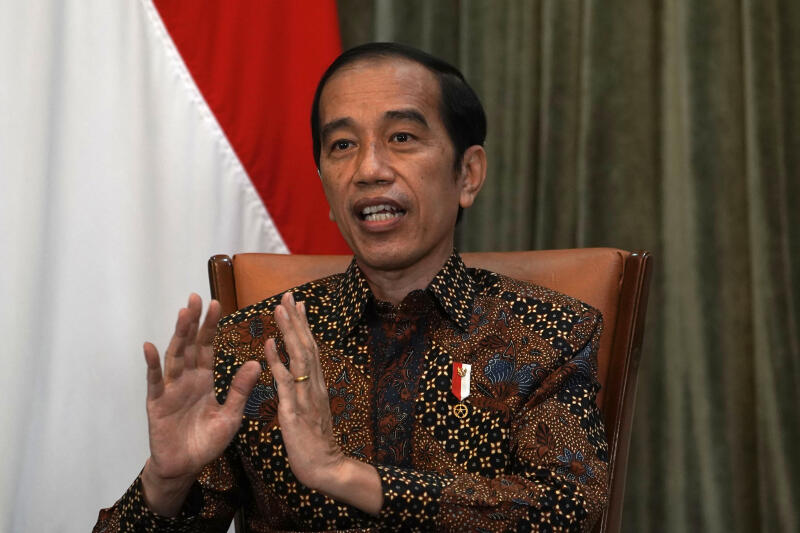Editorial Notes
Jokowi's BKPM upgrade to ministry not effective: Jakarta Post
The paper says that a perpetual lack of coordination between all the ministries and of determination to synchronise rules at the central government remains barriers Jakarta must overcome.
Sign up now: Get insights on Asia's fast-moving developments

President Joko Widodo's move last week to upgrade the bureaucratic status of the Investment Coordinating Board (BKPM) to a ministry, thereby becoming a member of the Cabinet, would not be effective in developing inter-ministerial cooperation and coordination, says the paper.
PHOTO: BLOOMBERG
JAKARTA (THE JAKARTA POST/ASIA NEWS NETWORK) - Private investment and basic infrastructure have been the main focus of President Joko "Jokowi" Widodo's attention over the past seven years.
No wonder, the Investment Coordinating Board (BKPM) was the first office he inspected a few days after his inauguration in late October 2014.
He has since then been going all out to invigorate domestic and foreign investment through regulatory and bureaucratic reforms.
That scale of priority fully makes sense. As a former furniture-making businessman, Jokowi clearly comprehends that it is private investment - and not the government - that creates jobs, which in turn provides wages and generates purchasing power for the huge population (lastly estimated at 270 million) to propel the wheels of the economy.
He enacted an executive order in mid-2018 on the establishment of a web-based integrated business licensing system, called Online Single Submission (OSS), which pledges to complete the processing of all business permits from the central government and regional administrations within one or two days instead of a few weeks or even months.
Still frustrated by the utterly slow pace of the reform, Jokowi and the government-controlled House of Representatives enacted late last year an omnibus law on job creation that essentially revises about 80 laws and thousands of presidential, ministerial and regional bylaws to remove barriers to investments.
But the main barriers remain largely the same: perpetual lack of coordination between all the ministries and regional administrations and of determination to synchronise and harmonise the procedures and rules at the central government and regional administrations.
But Jokowi's move last week to upgrade the bureaucratic status of the BKPM to a ministry, thereby becoming a member of the Cabinet, would not be effective in developing inter-ministerial cooperation and coordination.
This coordination is crucial for facilitating investment operations that transcend the jurisdictions of all economic ministers and regional administrations.
No details yet were immediately available as to what would be the authority and job description of the ministry as a presidential regulation has yet to be issued.
Yet more important is how this ministry would operate in the provinces that now already have their own Regional Investment Coordinating Boards (BKPMD), which fully report to their respective governors.
Interministerial cooperation and coordination cannot be managed by a minister but by a strong coordinating minister.
Hence, what Jokowi badly needs is a chief economics minister whom he fully trusts and who has full authority.
Yet more important, the chief economics ministers should be publicly perceived to be highly professional, independent (not a political leader) and have impeccable integrity.
Good examples are Boediono, Sri Mulyani Indrawati, Darmin Nasution under the Megawati and Susilo Bambang Yudhoyono administrations.
The chief or coordinating economics minister should be able to comprehend the importance of a coherent and credible strategy that outlines how the various individual policies hang together.
They should see to it that all economics ministers will make bureaucratic action more important than bureaucratic procedures and rigidities.
The problem now is that while the chief economics minister, Airlangga Hartanto, chairs the Golkar Party, investment affairs fall under the auspices of Coordinating Maritime Affairs and Investment Minister Luhut Pandjaitan.
- The Jakarta Post is a member of The Straits Times media partner Asia News Network, an alliance of 23 news media organisations.


